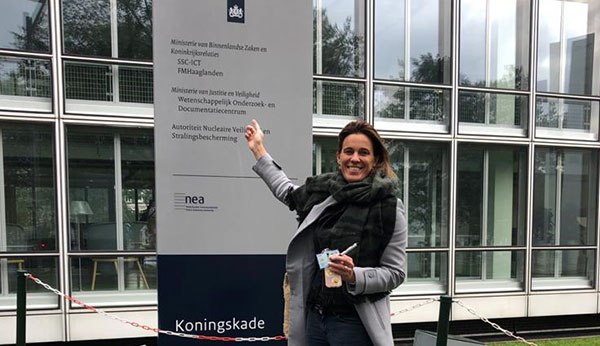
A great example of a government organisation undergoing a sustainability transition is FMHaaglanden. Co-founder Babs Mammen - van der Zon guides FMHaaglanden in this from her project leadership role.
The Netherlands aims to be fully circular by 2050. This ambitious goal of the central government is causing many public bodies to completely make business processes more sustainable. FMHaaglanden, one of the largest facilities service providers for the central government, has committed to this objective and is in the process of developing its services in a circular way.
Part of the services include the catering services that FMHaaglanden organises for a dozen ministries. The agreement with a new caterer was a logical moment for FMHaaglanden to implement circular catering in its entirety. Babs Mammen - van der Zon guides FMH in this from her project leadership role in sustainable circular catering. With Babs' years of experience in the catering industry and her specialism in sustainability, this assignment was tailor-made for her.
To achieve more sustainable catering, Babs went to work on a healthy and sustainable assortment, among other things. Hallmarks, reduced animal proteins and a fully plant-based range for the banqueting lunch service are part of this. Other interesting topics include fair trade and True Pricing by making the actual price of products transparent with environmental and social costs. Babs also focuses on reducing environmental impact, such as CO2-emissions, packaging materials and food waste.
Climate-neutral catering reduces CO2-emissions. To do this, FMHaaglanden looks, among other things, at products that contribute the most to environmental impact. The top 10 products with the largest CO2-impact are replaced by (plant-based) more sustainable alternatives. Another effective measure is local cooperation. Products are sourced close to home, saving many food miles.
A key objective is to reduce the share of residual waste to 35 per cent. To this end, FMHaaglanden is committed to reducing packaging material, combating food waste, reducing plastic use and optimally separating residual streams, among other things. A critical look was also taken at reducing the amount of avoidable food waste. These are food (leftovers) that are no longer usable for human consumption, but would have been if used differently. An example: When serving orange juice, orange peels are left over. But instead of throwing these away, they can be processed in the production of hand soap. With the waste monitor scans, FMHaaglanden analyses cutting waste and unsold food items so that action can be taken quickly.
Thanks in part to intensive cooperation with various contract and chain partners, significant results have been achieved. A broad analysis on the actions that make up circular catering ensures that the new concept is ready to be rolled out. In the new concept, healthy food, social return and a vital employee are actively promoted, CO2-emissions and reduced food waste and packaging materials. In addition, concrete targets were set for the coming years and actions were initiated to optimise residue processing.
Babs is excited and very appreciative of the cooperation during this project. "All the contract partners are very willing to work together, regardless of the contractual arrangements. They are open to looking at circularity in a different way. That has definitely contributed to the success of this project," she concludes.